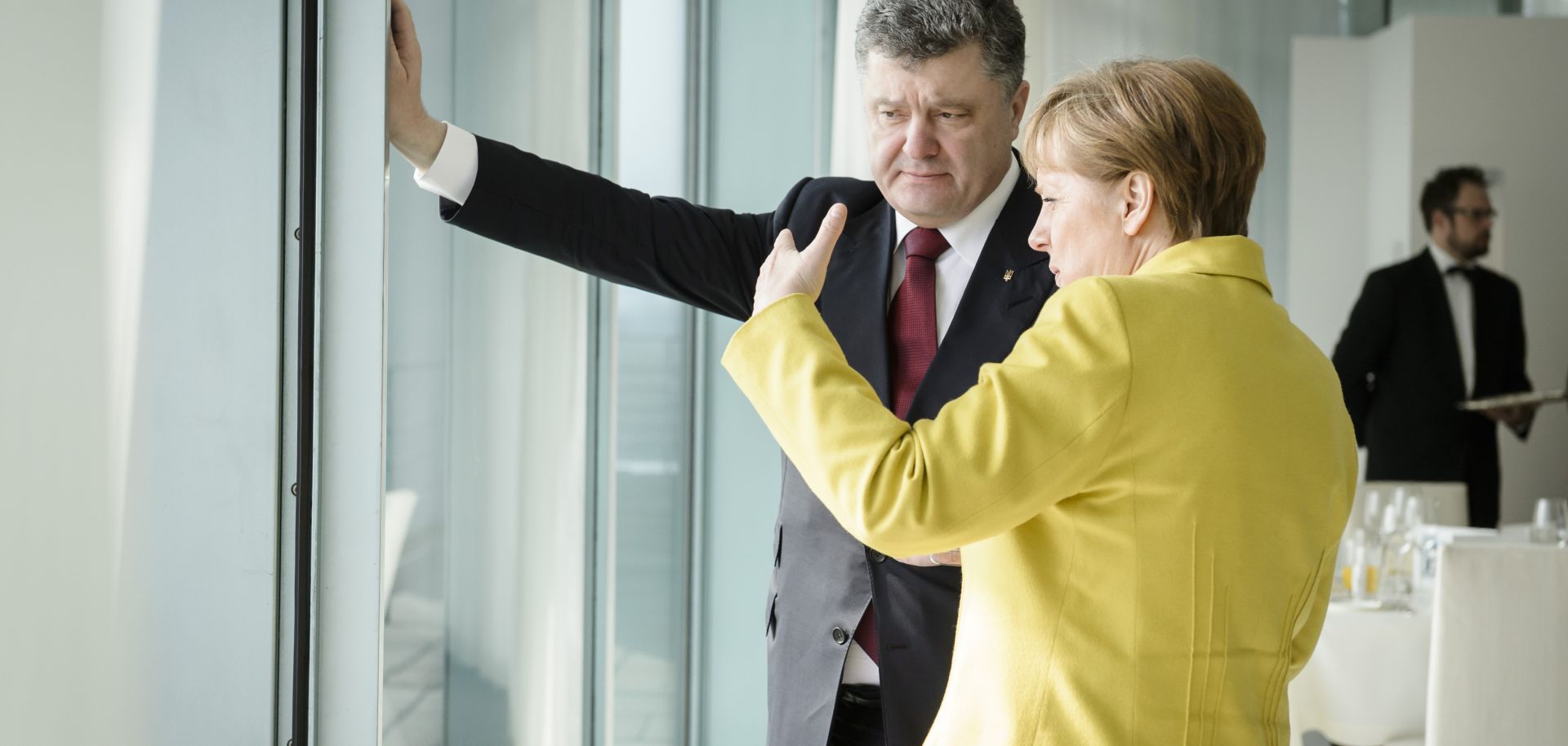ASSESSMENTS
When It Comes to Russia, Germany's Hands Are Tied
Mar 21, 2015 | 13:01 GMT

(SANDRA STEINS-BUNDESREGIERUNG via Getty Images)
Summary
Germany is being pulled in multiple directions when it comes to handling Russia. Chancellor Angela Merkel told Germany's lower house March 19 that the economic sanctions imposed last year on Russian companies should not be allowed to expire in July and September unless the demands of the Minsk agreement have been fulfilled. A day earlier, Merkel and U.S. President Barack Obama discussed the need to keep sanctions in place. Meanwhile, U.S. Lt. Gen. Ben Hodges announced that a planned U.S. training mission to Ukraine would be delayed until it was clear how the Minsk agreement had played out.
Merkel's public emphasis on keeping sanctions in place and Hodges' statement on Ukraine come as Germany is facing a crisis within the eurozone, discord among EU members over the future of sanctions, and the possibility that the United States or Russia could drive an escalation in Ukraine. These concerns are tying Berlin's hands as it works to reconcile Germany's strategic priorities and the interests of its allies.
Subscribe Now
SubscribeAlready have an account?
